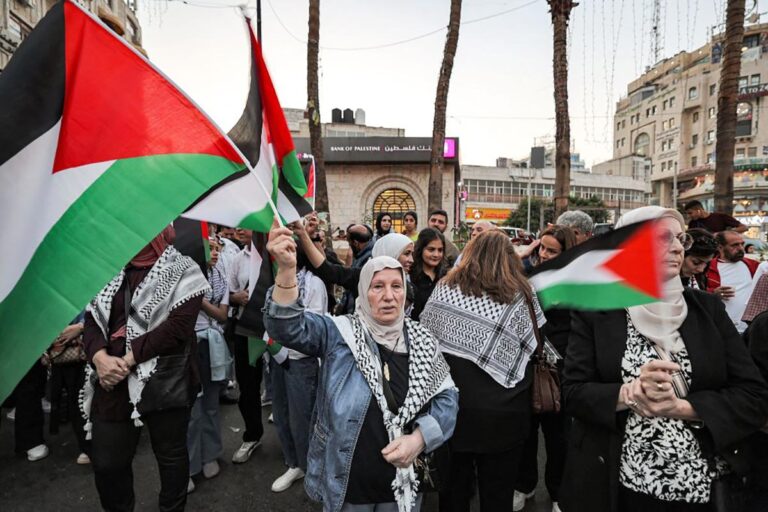
Since the start of the Israel-Hamas War on Oct. 7, conversations surrounding the Israeli-Palestinian conflict seem to be all-present and all-consuming.
In these conversations, you may be hearing of organizations like Fatah, the Palestinian Authority, and Hamas and wondering: what are these organizations and how do they fit into the Palestinian political landscape and the conflict with Israel? Here is your guide to understanding the history and roles of Palestinian governing organizations.
Palestine Liberation Organization (PLO)
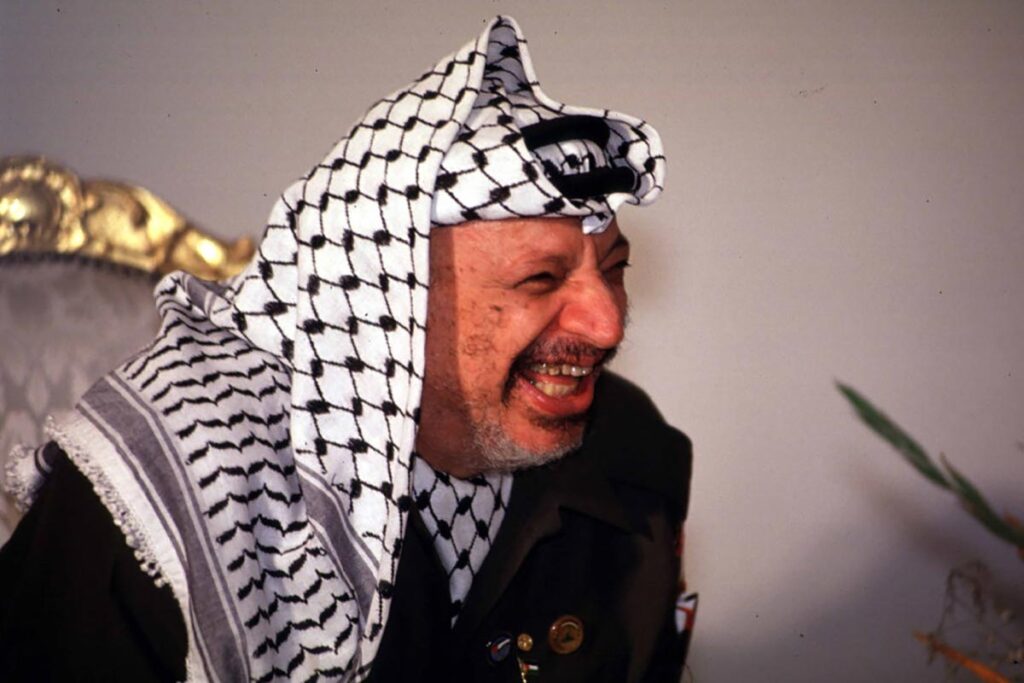
The Palestine Liberation Organization (PLO) is an umbrella organization that includes several Palestinian political factions, such as Fatah and the Popular Front for the Liberation of Palestine (PFLP).
It was established by the Arab League in 1964 to officially represent the Palestinian people after decades of weak and disunified Palestinian leadership.
At the time of its founding, the PLO believed “the armed struggle [was] the only way” to achieve their organization’s mission of liberating the entirety of Palestine. Since then, the PLO has committed hundreds of terror attacks against Israeli civilians, including the infamous 1972 Munich Olympics Massacre.
However, the PLO’s stance shifted with the 1993 Oslo Accords, a series of peace agreements between Israel and the PLO. Under the leadership of then-PLO Chairman Yasser Arafat and Israeli Prime Minister Yitzhak Rabin, the PLO recognized Israel’s right to exist, and Israel recognized the PLO as the legitimate representative of the Palestinian people.
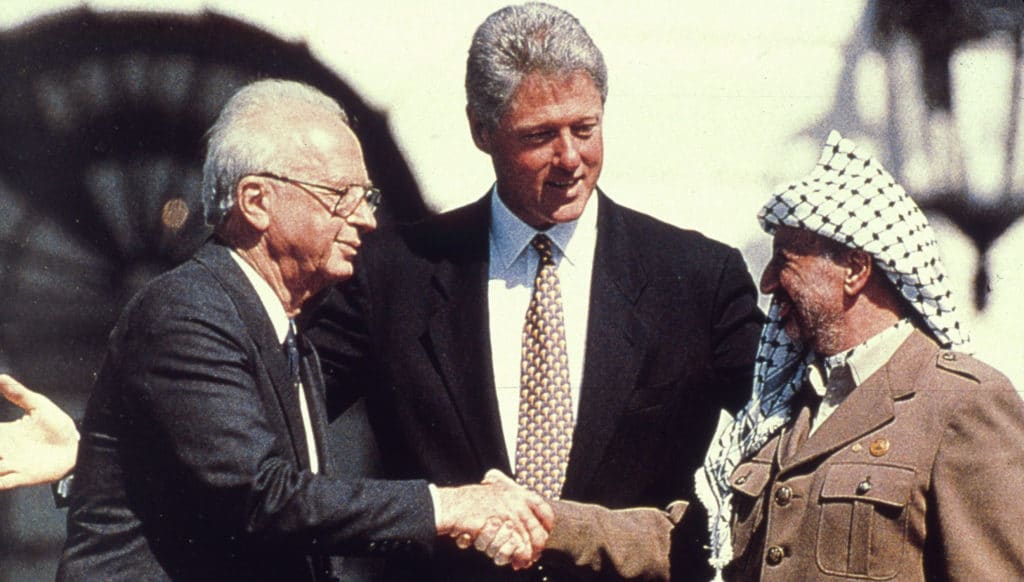
As part of the peace process, the PLO altered its mission to focus on establishing a Palestinian state within the territories seized by Israel in the Six-Day War, mainly the West Bank and Gaza.
However, this did not ultimately bring about peace. Despite Arafat renouncing terrorism against Israel following the Oslo Accords, several of the PLO’s member factions continued to engage in violence against Israeli civilians, particularly during the Second Intifada.
Following Arafat’s death, Mahmoud Abbas, who is often viewed as a more moderate and pragmatic figure compared to Arafat, became the chairman of the PLO. The PLO has held non-member observer status in the U.N. since 2012.
In 2018, the PLO once again suspended its recognition of Israel, demanding that Israel recognize Palestine according to the pre-1967 borders with East Jerusalem as its capital.
This move underscored the ongoing challenges in the Israeli-Palestinian peace process and the complexities of the PLO’s position in the conflict.
The PLO has not issued a formal condemnation of the Oct. 7 attacks. On that day, PLO chairman Abbas reacted by stressing “the right of the Palestinian people to defend themselves against the terrorism of settlers and the occupation forces.” However, several days later, he clarified that Hamas’s actions “do not represent the Palestinian people.” As Israel’s invasion of Gaza advanced following Oct. 7, Abbas added that the PLO “reject[s] the practices of killing civilians or abusing them on both sides.”
The Palestinian Authority (PA)
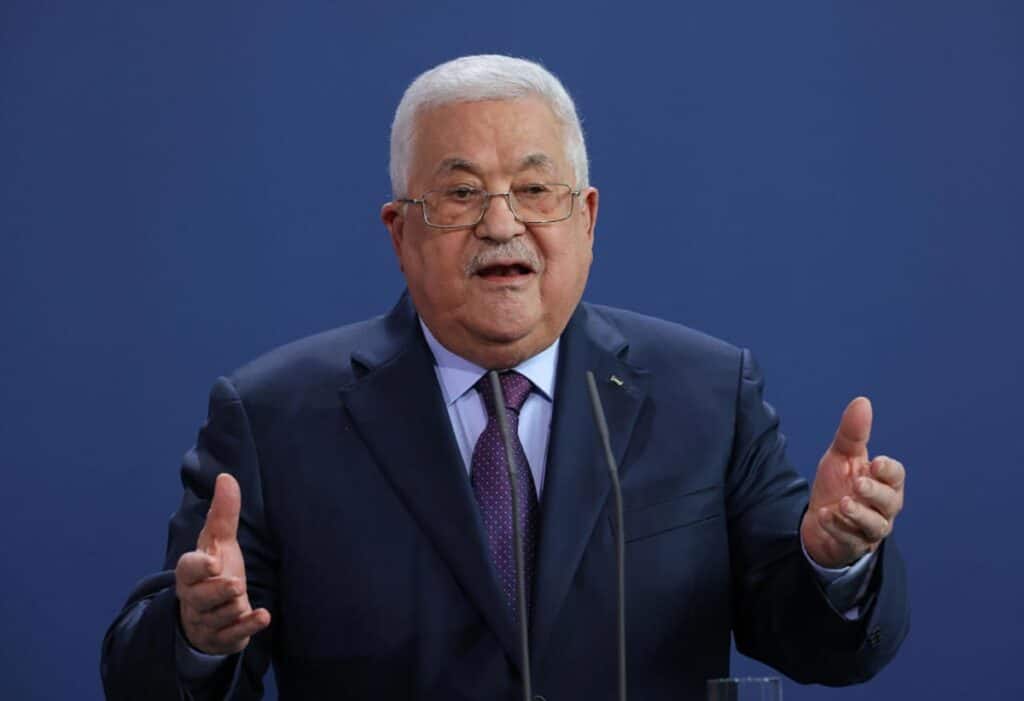
The Palestinian Authority (PA) is the governing body in the West Bank, established by the PLO after the Oslo Accords. Initially, the PA was meant to serve as an interim governing body for the West Bank and Gaza until the completion of the peace process outlined in the Oslo Accords.
However, the five-year interim period outlined in the Accords expired without reaching the anticipated peace agreement.
The PA continued to govern both territories until 2007 when Hamas seized control of the Gaza Strip following its victory in the 2006 Palestinian elections and a subsequent conflict with Fatah. Since then, the PA has primarily governed the West Bank, while Hamas has governed the Gaza Strip.
In February 2024, amid the ongoing war in Gaza, PA Prime Minister Mohammed Shtayyeh and his government submitted their resignations, citing the need for new governmental arrangements and national unity.
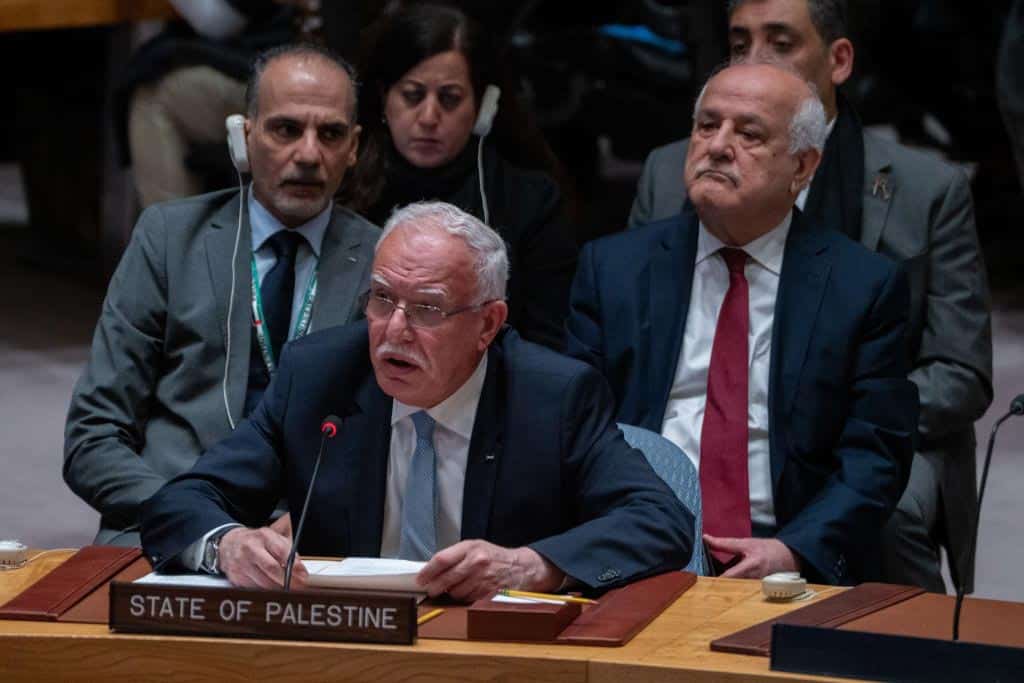
Shtayyeh’s statement opened the door to a potential national unity government, which could include Hamas, reflecting the evolving situation and the push for Palestinian consensus.
Although President Mahmoud Abbas’s four-year term as PA president ended in 2009, elections have been repeatedly delayed, and Abbas continues to hold office.
Both Abbas and the PA are unpopular within Palestinian society. A December 2023 poll found an overwhelming rejection of PA president and Fatah chairman Mahmoud Abbas, with 88% of Palestinians believing that he should resign and 60% saying the PA should be disbanded entirely.
The refusal to hold elections is just one of the reasons why the PA is often branded as corrupt. Critics also view Abbas “as a collaborator with the IDF” and “as a traitor who submitted to Israel,” Middle East researcher and former MK Ksenia Svetlova explained.
Despite their significant concessions to the Israeli government, the PA also incentivizes terror against Israel through their “Pay-for-Slay” policy, which awards $300 million annually in monthly salaries to dead or imprisoned terrorists and their families.
As agreed during the Oslo Accords, the PA exercises varying degrees of authority in different parts of the West Bank, having full jurisdiction over Area A, partial jurisdiction over Area B, and no jurisdiction over Area C.
Despite being a relatively more moderate and secular entity than Hamas — unlike Hamas, the PA recognizes Israel’s right to exist — the PA has yet to condemn the Oct. 7 attacks. U.S. President Joe Biden and other world leaders have called for the PA to govern Gaza when the war ends.
Fatah
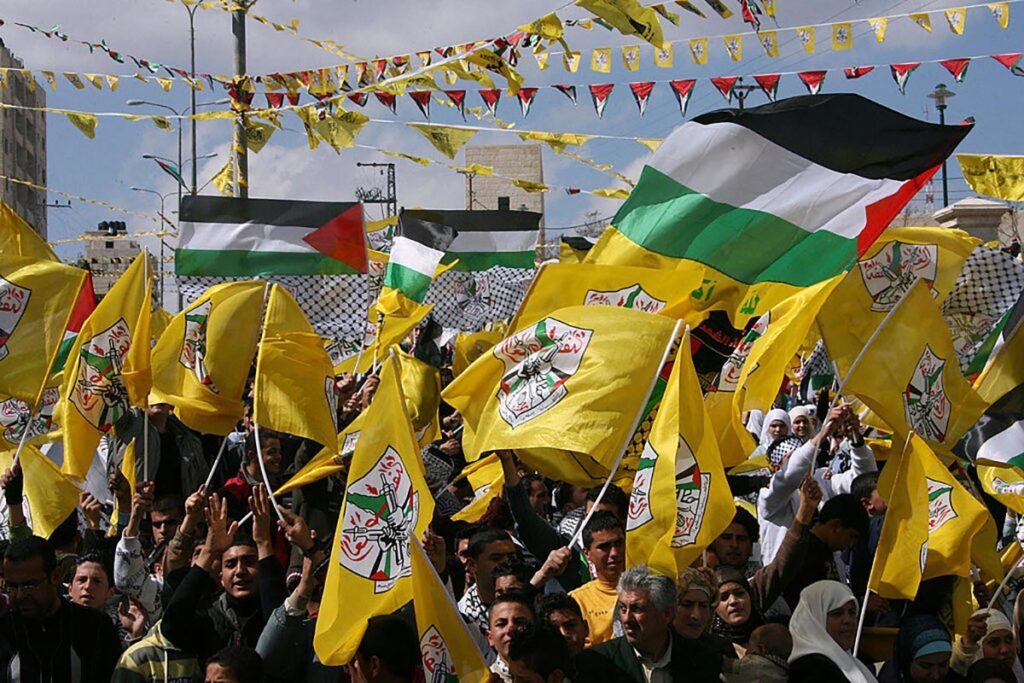
Fatah, the largest faction within the PLO, is a secular nationalist political party that currently controls both the PLO and the PA. Fatah recognizes Israel and endorses a two-state solution.
Fatah was established in 1958 in Kuwait by Yasser Arafat and other Palestinian leaders. Arafat led Fatah until his death in 2004. While Fatah initially endorsed violence against Israel as a means to establish a Palestinian state, the party began pursuing diplomacy in the 1980s — though Fatah continues to hold ties with terrorist activities and groups, like the Al-Aqsa Martyrs Brigade.
Since Arafat’s death, Fatah’s dominance and popularity have faced challenges, leading to Hamas winning the PA’s 2006 parliamentary elections. The election results spurred bitter clashes between the two parties, with Hamas eventually forcing Fatah out of Gaza. Fatah now holds authority only in the West Bank.
Fatah has not yet condemned the Oct. 7 attacks.
Palestinian Islamic Jihad (PIJ)
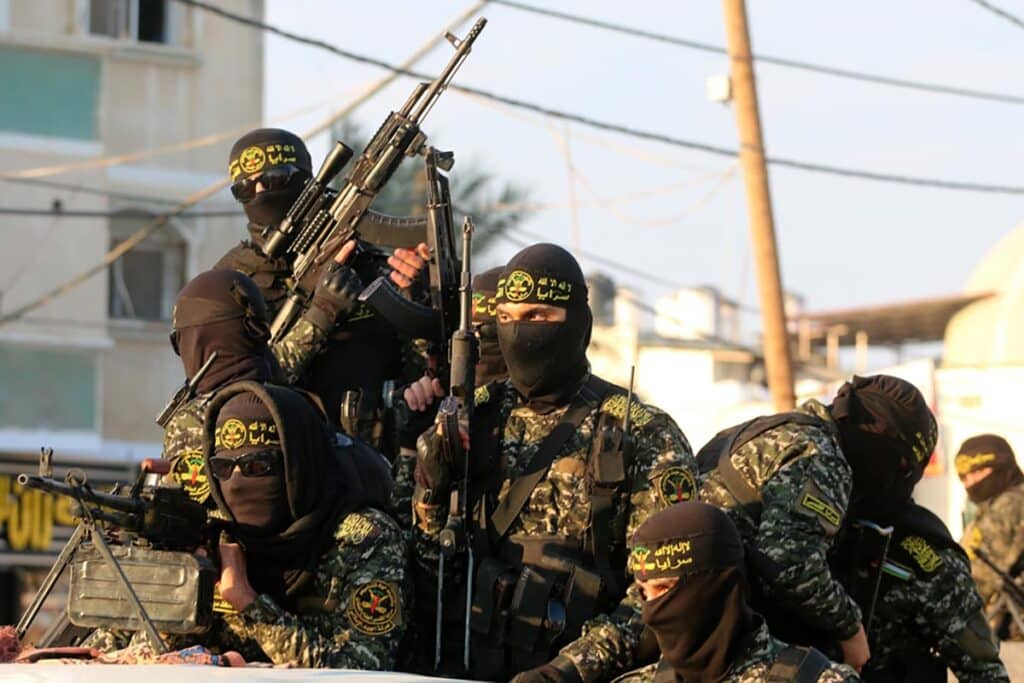
Palestinian Islamic Jihad (PIJ) is a Palestinian terror group based in the Gaza Strip and the West Bank. It is the second most powerful militia in Gaza after Hamas. Unlike Hamas, which has a political division in addition to an armed militia, PIJ has never formally joined political institutions or participated in elections.
Founded in 1979 by Muslim Brotherhood members Fathi Shaqaqi and Shaykh Abd al Aziz Awda, PIJ emerged as a radical offshoot of the Brotherhood, propelled by the fervor of the Iranian Revolution.
After its formation, PIJ quickly became involved in violent activities within Egypt and against Israelis. The Egyptian government expelled PIJ members to the Gaza Strip after they were linked to the assassination of President Anwar Sadat in 1981.
A fundamentalist Islamist organization, PIJ rejects the Oslo Accords and a two-state solution, seeking the destruction of Israel and the establishment of an Islamic Palestinian state.
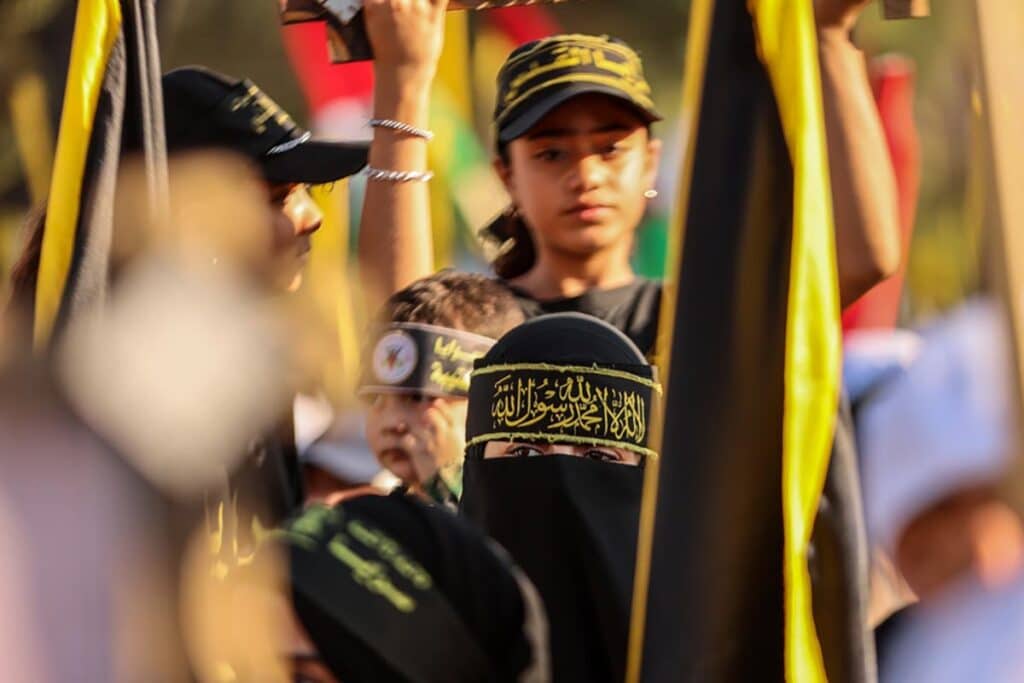
Historically, PIJ’s financial support came primarily from Syria and Hezbollah, but since 2014, Iran has become a significant backer. PIJ is currently led by Ziyad al-Nakhalah.
On Oct. 7, PIJ participated in the attacks against Israel, including perpetrating acts of sexual violence against women. The group claims it has held 30 Israeli hostages out of the 240 that were taken into Gaza. Read more about PIJ.
Hamas
Hamas, an acronym for Harakat al-Muqawama al-Islamiya (meaning “Islamic Resistance Movement”), was formed in 1987 as an offshoot of the Muslim Brotherhood.
Since the early 90s, Hamas has conducted terror attacks against Israel, including suicide bombings. After Israel and the PLO signed the first of the Oslo Accords in late 1993, Hamas — along with other terror groups — responded with a wave of attacks. During the Second Intifada from 2000 to 2005, Hamas was responsible for 40% of the terrorist attacks against civilians.
Hamas became the de facto authority in Gaza after winning a majority of seats in the PA’s legislature and forming a government in 2006.
Palestinians in Gaza have not voted for a legislature since 2006, nor a president since 2008. The group is divided into three parts: a network of social organizations, including schools and hospitals in the West Bank and Gaza Strip; a political division; and an armed militia wing, the Izz ad-Din al-Qassam Brigades.
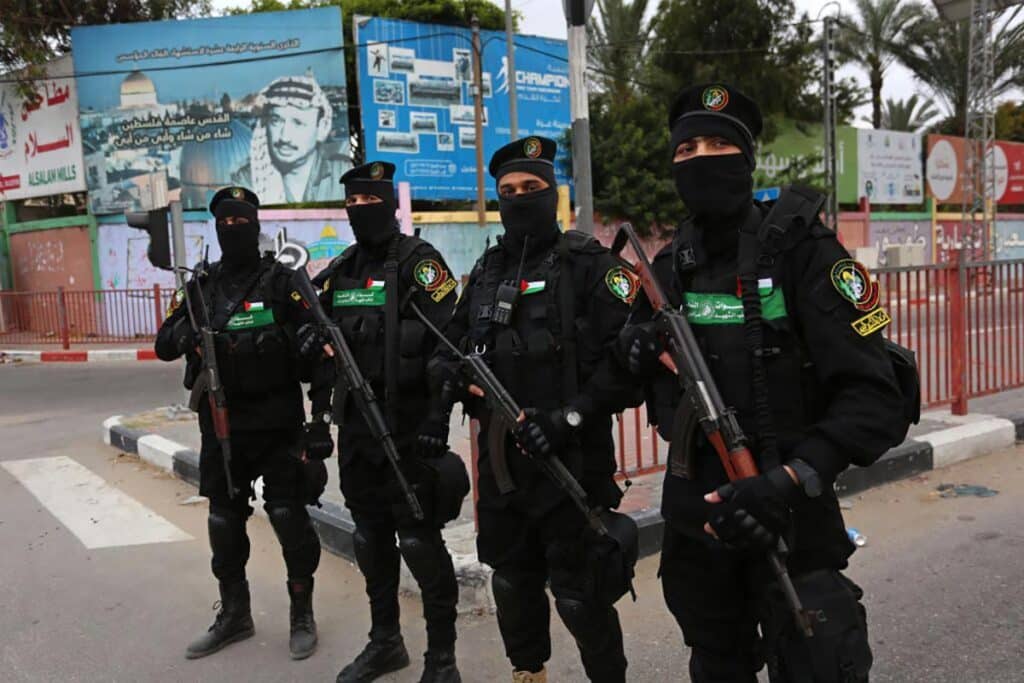
Hamas is designated as a terrorist group by multiple countries, including the U.S., Canada, the European Union, Israel, Japan, Paraguay, and the U.K., because its charter calls for the destruction of Israel to establish a Palestinian state under Islamic rule.
Hamas receives its funding from Qatar, Iran, Palestinian expatriates and private donors.
Hamas now governs over 2 million Palestinians in Gaza under fundamentalist religious doctrine. Ismail Haniyeh currently serves as the group’s political chief, having replaced longtime leader Khaled Meshaal in 2017.
Read more: What do Palestinians think of Hamas?
Haniyeh has operated from Doha, Qatar, since 2020, while Yahya Sinwar oversees the day-to-day affairs in Gaza.
On Oct. 7, 2023, Hamas launched an unprecedented surprise attack against Israel. This attack is the deadliest in Israel’s history and the deadliest 24 hours in Jewish history since the Holocaust. Hamas and Israel are now engaged in a war that has claimed tens of thousands of Palestinian and Israeli lives. Read more about Hamas.


